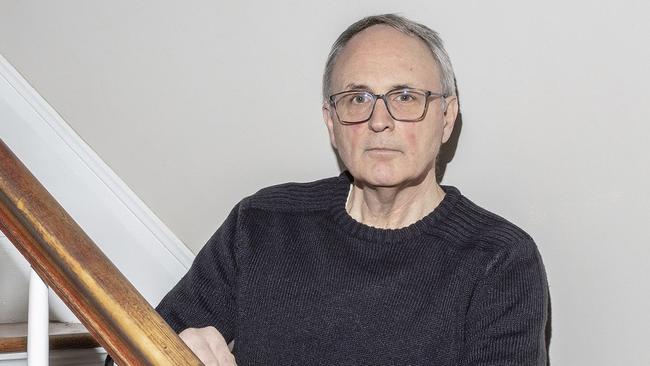Age-old secret to staying employed
Many baby boomers are going to great lengths to appear younger — with good reason.

Peppy Dubno worked for 23 years for a large financial services company in New York. And during that time she didn’t tell anybody her age.
Dubno, who retired last year at 70 as a vice-president specialising in data and information architecture, didn’t talk about when she went to college or other life events that might reveal her age. She didn’t correct colleagues who thought she was far younger because of her proficiency in technology and because she’s fit and very youthful looking, with shoulder-length light brown hair.
She knew she was highly regarded by her bosses and colleagues. But she worried about fitting in to a workplace where many employees were in their 20s and managers two or three decades younger than her. “I didn’t want anyone to think of me as their parents’ age,” she says.
Employees in their 50s, 60s and 70s, though outnumbered in the workforce by millennials, are the only group in the US whose labour-force participation rates are growing. Yet they are the least visible in offices, shops and other workplaces. That is because many conceal their ages. Worried they’ll be avoided or rejected by younger managers and co-workers, they often go to great lengths to try to appear younger by getting cosmetic surgery, shortening their work histories on social media accounts and in conversations, not citing past accomplishments or not displaying photographs of their grandchildren.
“Older employees are in the closet today in much the same way gay employees used to be,” says Ruth Finkelstein, director of the Brookdale Centre for Healthy Ageing at the City University of New York’s Hunter College. “There’s pressure to pretend not to be ageing in order to succeed while ageing, and employers who don’t celebrate their contributions or give them opportunities for new assignments and promotions as they do young talent are complicit in this deception.”
Such internalised ageism is rampant, with many baby boomers dreading being called old, fearing it will undermine their ability to compete in workplaces where youth is prized. They worry they’ll be stereotyped as unable to learn new things or understand technology, or they’ll be considered slow, old-fashioned, too costly and likely to become ill — and subsequently denied promotions and pay rises or laid off.
Their fears aren’t unfounded. About 56 per cent of US workers who are 50 or older are pushed out of jobs before they plan to retire, and only one in 10 who find new work ever again earn as much, according to a recent study by economist Richard Johnson, of Washington, DC, think tank the Urban Institute.
Although it is illegal in the US for employers to discriminate against workers, it is difficult to prove; employees must show they lost a job or didn’t get an assignment solely because of their age.
For older employees who have lost a job, hiding their age seems especially important as they search for new employment.
Michael Snizek, 63, a financial services products manager, was among 15 employees laid off in 2017. Earlier in his career he worked at companies such as Merrill Lynch and UBS Financial Services. He has learned that disclosing his college graduation date in a job interview “is a disqualifier”, as is mentioning jobs that go back more than 15 or 20 years. “I’ve never felt better in my life, plus now that my kids are grown, I have more time to jump on a plane and be away from home for long stretches of time,” says Snizek, who last year made 15 trips to Copenhagen as a consultant to a company.
“Too many employers think that if you’re older, you’ll never be able to stay awake after 7pm,” says Snizek, who wants to work for five to 10 more years.
As he looks for new employment, he has adopted a youthful image. He carries a backpack instead of a briefcase, has discarded his old leather shoes for a trendier, two-tone pair of Allbirds, and asks his daughter what podcasts and Netflix shows she and her friends like most so he can converse easily with young managers.
Patti Temple Rocks knows how tough it can be for older workers. Now 60, she was moved from an executive position at a Chicago-based communications company last year to a less influential job, despite having received strong performance reviews, she says. “I felt devalued when I least expected it, when I felt I was at the height of my skills and knowledge,” says Rocks. When she told her boss she wasn’t happy with her new position, he asked, “How long do you plan on working anyway?” she says. (Rocks’s ex-company declines to comment on her tenure.) She left the company, wrote I’m Not Done, a book about ageism in the workplace, and now works as chief client officer at ICF Next in Chicago.
“They wanted me for my experience, which makes them the exception,” she says.
Concealing one’s age is an understandable tactic but it takes a psychological toll. “If you’re in hiding, you’re never fully present and you’re worried about being found out,” says Ellen Langer, a psychology professor at Harvard University who has studied and written about ageing, decision-making and mindfulness.
Employees who are afraid to talk honestly about themselves and the knowledge they have accumulated across long careers are apt to lose confidence and withdraw, says Langer, 72. This can result in them being overlooked and excluded by bosses and colleagues from strategy meetings or social gatherings — precisely what they need to avoid happening if they want to keep working.
Employers go along with the secrecy by avoiding conversations about employees’ ages and tenure. They worry that if they inquire about or mention anyone’s age, they’ll be accused of discrimination. Only 8 per cent of chief executives surveyed by PricewaterhouseCoopers in 2015 said their diversity and inclusion strategies included a conversation about age.
THE WALL STREET JOURNAL



To join the conversation, please log in. Don't have an account? Register
Join the conversation, you are commenting as Logout